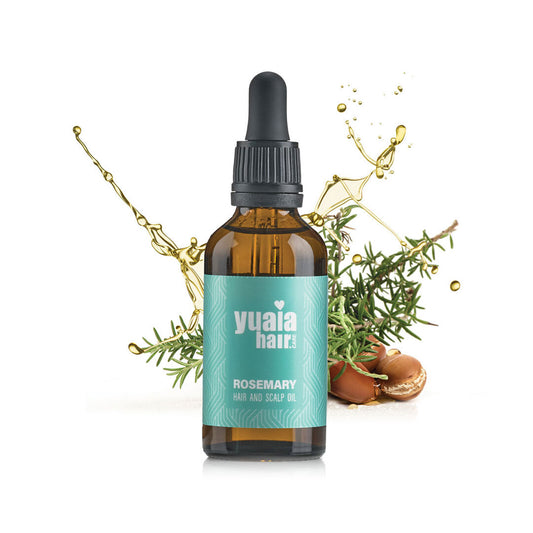
Recommended durations for specific oils
Each oil has unique properties that determine how long it should stay in your hair. Leaving it on for too short a time may limit its benefits, while keeping it in for too long can lead to buildup or greasiness. Below are the optimal durations for different oils.
How long to leave coconut oil in hair? Best for deep conditioning
Coconut oil is renowned for its deep conditioning properties. Applying it to your hair for at least 30 minutes allows the oil to penetrate the hair shaft, reducing protein loss and strengthening the strands.
For more intensive conditioning, leaving it in overnight can provide enhanced moisture and repair, especially for dry or damaged hair.
However, be cautious, as extended application may lead to buildup, making it challenging to wash out. It's advisable to start with shorter durations to assess how your hair responds before opting for overnight treatments.
How long to leave castor oil in hair? Ideal for hair growth
Castor oil is renowned for its potential to promote hair growth and improve scalp health. Due to its thick consistency, it's advisable to leave it in your hair for 20 minutes to 2 hours before washing.
Prolonged application can lead to buildup, making thorough cleansing essential. Using a clarifying shampoo is recommended to ensure complete removal and prevent potential scalp issues.
How long to leave rosemary oil in hair? Stimulating for the scalp
Rosemary oil is renowned for its ability to stimulate scalp circulation, which may encourage hair growth.
For optimal benefits, it's recommended to leave a diluted mixture of rosemary oil and a carrier oil on the scalp for at least 30 minutes; some individuals opt to leave it on overnight for enhanced effects.
To avoid skin irritation, always dilute rosemary essential oil with a carrier oil, such as jojoba or coconut oil, before application. A common dilution ratio is a 2% solution, which equates to mixing 2 drops of rosemary oil with 98 drops (approximately one teaspoon) of carrier oil.
How long to leave avocado oil in hair? Ideal for moisture and nourishment
Avocado oil is prized for its deeply hydrating and nutrient-rich properties, making it ideal for restoring moisture and improving hair elasticity. Due to its lightweight nature, it can be left in the hair for 30 minutes to a few hours before washing.
Leaving it on for an extended period allows the oil to penetrate deeply, providing essential vitamins and fatty acids that nourish the scalp and strands.
However, to avoid excessive buildup, a thorough rinse with a gentle shampoo is recommended, especially for those with fine or oily hair.
How long to leave argan oil in hair? Quick absorbing for shine
Argan oil is lightweight and fast-absorbing, making it ideal for hydrating and smoothing hair without leaving a greasy residue.
For optimal results, apply argan oil to your hair and leave it in for 15 to 30 minutes before washing it out. This duration allows the oil to penetrate the hair shaft, providing essential moisture and enhancing shine.
Regular use of argan oil can help improve hair elasticity and reduce frizz, leaving your hair looking healthier and more vibrant.
How long to leave olive oil in hair? Moisturizing and repairing
Olive oil is rich in fatty acids, making it excellent for moisturizing and repairing dry, brittle hair.
For optimal results, apply olive oil to your hair and leave it in for 30 minutes to 2 hours before washing it out. This allows the oil to penetrate the hair shaft, providing deep hydration and improving elasticity.
However, if you have fine hair, be cautious, as leaving olive oil on for extended periods may weigh it down or make it feel greasy. It's advisable to start with shorter application times to see how your hair responds.
Tailoring your hair oiling routine
To maximize the benefits of hair oiling, it's important to customize your routine based on your hair type, scalp condition, and specific hair goals.
For instance, individuals with dry or damaged hair may benefit from heavier oils like coconut or castor oil, applied for longer durations to enhance moisture and repair.
Conversely, those with oily hair might opt for lighter oils, such as jojoba, applied for shorter periods to avoid excess greasiness. Additionally, understanding your scalp's needs—whether it's prone to dryness or oiliness—can guide the frequency and type of oil used. By aligning your oiling practices with these factors, you can promote healthier, more vibrant hair.
 2-4 day UK delivery
2-4 day UK delivery
 25.000+ satisfied customers
25.000+ satisfied customers
 Satisfaction Guarantee
Satisfaction Guarantee



























